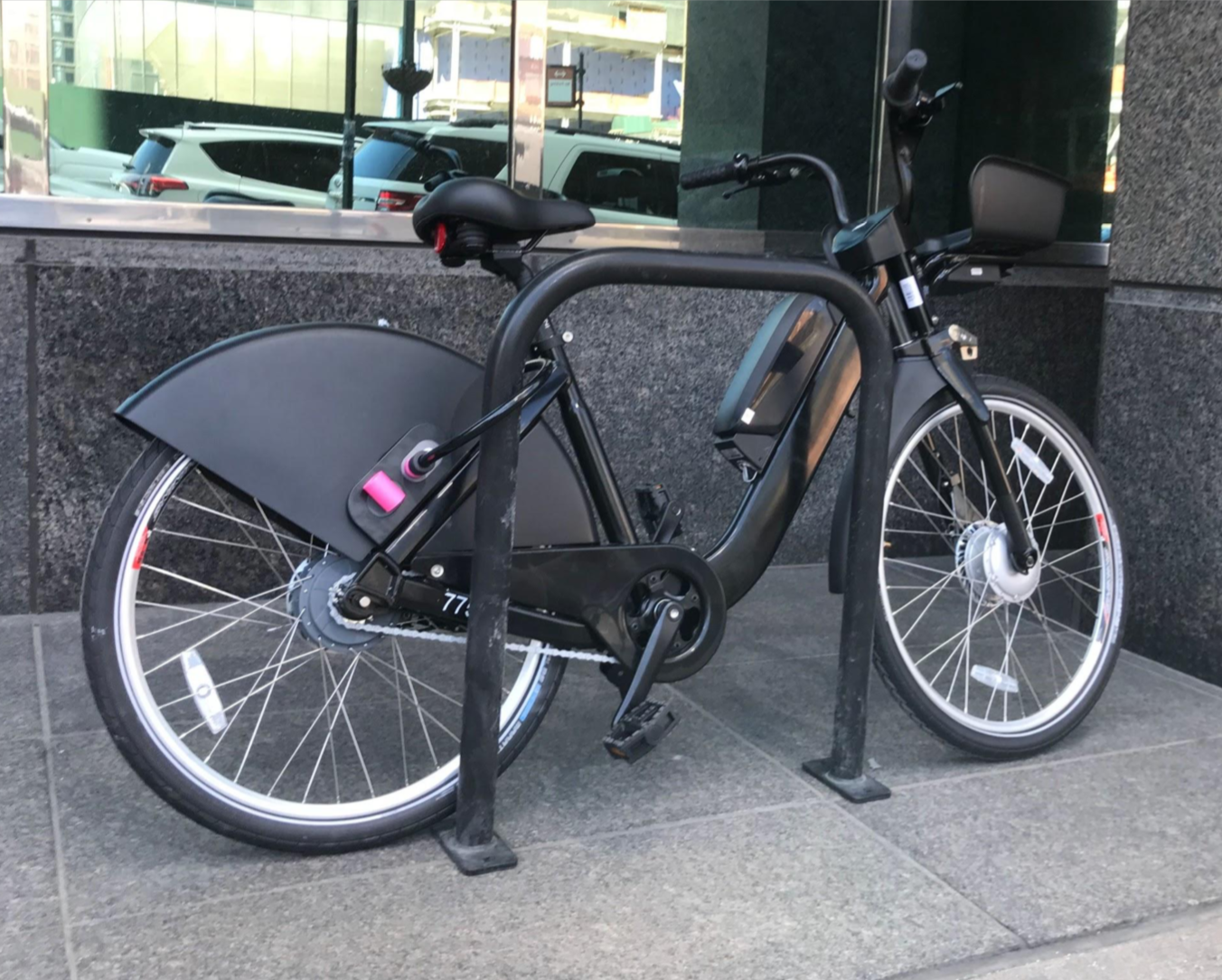The contract amendment between the city of Chicago and Lyft that City Council may potentially approve at its April 10 meeting has some interesting details that haven't gotten much, if any, play in the media. To bring you up to speed before I jump into the contract details: The deal would require Lyft to drastically expand the Divvy bike-share system into all 50 wards, give the city a cash payment every year, and deploy electric-assist bikes. Check out the contract amendment document here.
What you may not have heard is the following, taken straight from the contract:
- Divvy must have a summer youth jobs program and include ex-offenders. The contract doesn't specify a deadline, or stipulate other requirements. The youth jobs program sounds similar to the one that Assistant Commissioner Sean Wiedel ran under the Department of Environment, which was then transferred to CDOT when Mayor Emanuel closed that department.
- Divvy must study adaptive bikes and run an adaptive bike program. The bikes do not have to be Divvy-branded bikes, nor do they have to be available at docking stations. The city must approve the program.
- There's a phased implementation, so even though citywide expansion wouldn't need to be completed until 2021, portions of the build-out have to be complete within 12 months (3,500 new bikes and 50 new stations), 24 months (3,500 new bikes and 125 new stations), and 36 months (3,500 new bikes).
- Fifteen percent of stations have to be electrified stations by 6/30/21 to charge the e-bikes. This 15 percent group can include existing city-owned stations and new stations. (That doesn't seem like enough stations to be able to charge thousands of bikes a day.)
- The contract requires the installation of "bicycle hubs", which are basically bike parking areas without docks, according to the limited text in the contract.
- Lyft can get third-party sponsors to supplement their own revenue and expenses, and for a period of 90 days, must offer Blue Cross Blue Shield right of first refusal to be a third-party sponsor.
- Twenty percent of the static ad panel faces and digital ad impressions can be used to advertise Lyft and its products. Five percent of the static ad panel faces and digital ad impressions are for the city to use for public service announcements. Additionally, some ad space that Lyft is unable to sell within a given period can be used to display Lyft branding and artwork selected by Lyft, but 25 percent of that unsold space must be given to the City for PSAs.
- If Lyft wants to change the name of the system from Divvy to something else, Chicago has the right to reject the proposed name for any reason.
- Lyft must work with the CTA to make it possible to use the Ventra to unlock bikes by 12/31/19.
- In another joint venture with CTA, Lyft must offer an integrated transit-bike fare medium, such as a fare card, by 6/1/21.
- Every year Lyft would pay the City $6 million, which increases four percent annually. In addition, the city would get forty percent of ad and sponsorship revenue, minus certain expenses, at a minimum of $1.5 million a year. The city also gets five percent of a year's ridership revenue if it exceeds $20 million.
One last thing: to improve transparency, every contract the city signs includes an economic disclosure statement that must be filled out by owners of the private entity on the other side of the contract. Divvy is run by Motivate International, Inc., which is owned by Bicycle Holdings, LLC, which is owned by Lyft, Inc., 10 percent of which is owned by Rakuten, a Japanese internet services company.
![]()
Did you appreciate this post? Consider making a donation through our PublicGood site.






